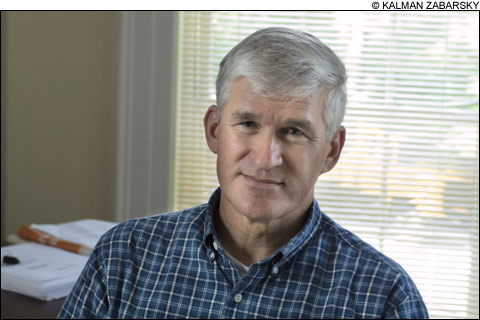Turns out Bacevich's vision has some fans inside military circles. The latest issue of Military Review -- one of the Army's intellectual journals, published at Fort Leavenworth -- contains an article retired Navy Commander John Kuehn, an associate professor of military history at the Army's Command and General Staff College for rising career officers at Leavnworth. His piece references and echoes Bacevich.
Prior to the outbreak of World Wars I and II, Kuehn writes, America's national security strategy was simple: Dominate the Western Hemisphere, use the Navy to guarantee free access to markets elsewhere -- and otherwise stay the hell out of the way:
Over time, the grand strategy came to encompass military nonintervention outside the Western Hemisphere, free trade access to whatever markets Americans desired, and the right to act as the hemispheric hegemon. These last two components are known as the Monroe Doctrine and the Open Door Policy, respectively.13 The attainment of a contiguous landmass from sea to shining sea completed the defensive geographical requirement needed by this strategy with a sort of buffer zone in the southwest along the Rio Grande. This was the American grand strategy, constitutionally based, for almost 150 years—although the geographical land component came after the war with Mexico.
The Cold War necessarily changed that vision, Kuehn writes. But the Cold War has been over for 21 years. It's way past time for American to revert to the old ways, he says.
I would submit that there is not much work to do to adopt a new grand strategy. Just re-adopt the old one, technologically updated of course and with a strong, but smaller, military establishment capable of defending our air,sea, and space “moats.” The war that lasted from 1914 to 1989 is over. The grand strategy that served the United States well before World War II is a fine framework for the 21st century.
Today’s operational environment is actually a more promising one in which to implement the traditional strategy than it appears at first blush. The American voting public does not favor interventionism. We need only divest ourselves of commitments made in error (Iraq), in haste with little thought of the end state (Afghanistan and Iraq), and those that have outlived their utility (Korea, Japan, troops in Europe, and our Navy in the Persian Gulf). Strategic retrenchment of this sort, in which we remove the training wheels from the bicycle and stand on the sidewalk, is a necessary step toward healthy growth. The United States has more than enough national power to get involved if the bicycle falls down, but the U.S. must control its tendency toward strategic impatience (a feature of our strategic culture). We need to practice strategic patience. We need to learn to say “no.” In doing so, we may find we actually have more strategic choices—and less strategic imperatives—than ever.
Now, I don't want to overstate what's being said here: Military Review is one of those places within the Army that smart folks in the military establishment can do their "blue sky" thinking. It's unlikely President Obama is going to start bringing troops home from Korea and Japan anytime soon. But Kuehn, it should be noted, develops the military history curriculum at CGSC, where virtually every Army officer goes for mid-career education after making the rank of major. These are the ideas being kicked around by the next generation of generals. Maybe we should be taking them seriously.

